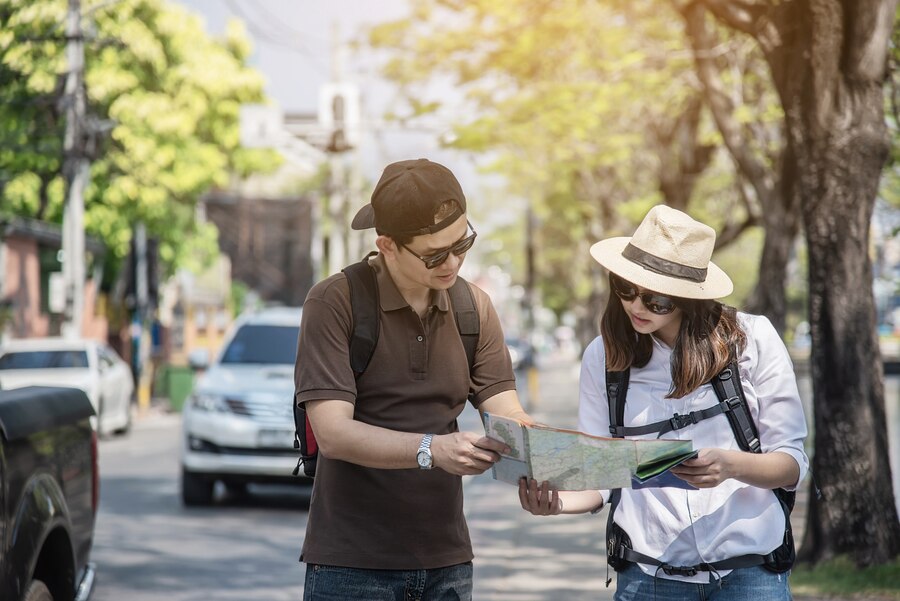When it comes to traveling abroad, communication forms an integral aspect. Not only does it help bridge the gap between two people, but it also helps communicate ideas better. But how do we get over this barrier of language? Have you ever thought about it?
Discover essential tips and strategies for overcoming language boundaries while traveling in this comprehensive guide today. Learn how to communicate effectively, embrace local cultures, and enhance your travel experience. And there’s much more. So, stay tuned till the end.
Understanding The Importance Of Communication In Travel
Language is more than just words; it’s a gateway to understanding a culture. Effective communication can enhance your travel experience, allowing you to connect with locals, explore off-the-beaten-path destinations, and gain a deeper appreciation for the place you’re visiting. Seeing the world from a different eye is no less than an adventure itself.
However, a few things might take a toll on your seamless traveling experience. One of them is the language hurdle. We are immersing ourselves in a completely new environment. Hence, we cannot expect others to know the language we speak. The better idea is to learn the dialect before planning to visit a certain destination.
Embracing the Challenge of Language Barriers
Traveling to a new country can be an exhilarating experience, but it often comes with the challenge of navigating through language barriers. Whether you’re a seasoned traveler or a first-time explorer, encountering a different language can seem daunting.
However, with the right strategies and an open mind, overcoming these barriers can significantly enrich your travel experience. For travelers seeking additional support, online resources like test takers for hire offer valuable assistance in language learning and cultural understanding.
Basic Language Skills: The Foundation of Effective Communication
Before your trip, invest some time in learning basic phrases in the local language. Greetings, directions, and common questions can go a long way. Use language learning apps, online courses, or even phrasebooks to build a foundational understanding. This not only aids communication but also shows respect for the local culture.
Technology as a Bridge Over Language Gaps
In today’s digital world, technology can be a powerful tool in overcoming language barriers. Translation apps, language learning software, and online dictionaries can provide real-time assistance. However, it’s important to use these tools as a supplement rather than a sole reliance, as they may not always capture the nuances of a language.
Non-Verbal Communication: The Universal Language
Often, what you cannot convey in words can be expressed through gestures and body language. Non-verbal communication like smiling, nodding, and pointing can be universally understood and are invaluable tools in bridging language gaps. Remember to be mindful of cultural differences in body language to avoid misunderstandings.
Immersion and Practice: Learning on the Go
The best way to overcome a language barrier is through immersion. Engage with locals, practice speaking whenever possible, and don’t be afraid to make mistakes. Immersion not only improves language skills but also provides a more authentic experience of the local culture.

Cultural Sensitivity and Respect
Understanding cultural nuances and showing respect can greatly enhance communication. Learn about local customs, social norms, and appropriate behaviors. This not only helps in avoiding faux pas but also builds trust and rapport with the locals.
Patience and Perseverance: Key to Overcoming Challenges
Patience is vital when navigating language barriers. Misunderstandings are common, and it’s important to remain calm and patient. Perseverance in trying to communicate can lead to meaningful interactions and even new friendships.
The Role of Visual Aids in Communication
Carrying a map or a picture dictionary can be incredibly helpful. Visual aids can assist in conveying your message when words fail. They can be especially useful in restaurants, transportation centers, and tourist attractions.
Enlisting Local Help
Don’t hesitate to seek help from local guides, hotel staff, or even friendly locals. People are often willing to assist travelers, and their local knowledge can provide insights that are not available through language alone.
Learning from Mistakes and Miscommunications
Mistakes are inevitable, but they are also learning opportunities. Embrace miscommunications as part of the travel experience. Each error is a step towards better understanding and communication.
The Effect Of Traveling On Communication Skills
Till now, we have been looking into the positive impacts of communication on traveling. But now we shall discover how traveling also enhances our conversational skills. It does more than just make you fluent in a particular language or dialect- travel literally enhances your overall art of communication. Here are some of its impacts:
It Forces You To Communicate More
While traveling, whether you want it or not, but you have to make small talk with your co-passengers. All through your journey, you will be meeting new people, and there will be fostered communication. While a few cultures are a bit reserved, others are always happy to help. Hence, in any way, travel surely benefits our communication extensively.
Travel Lets You Experience Different Communication Aspects
Have you ever come across cultures that use their hands for gesturing and speaking loudly? People in Israel and Latin America often do that. While this might intimidate a few people, it is just a form of communication. Thus, learning all these conversational forms doesn’t scare you away on the spot, and you can easily converse with others.
It Teaches You How To Read Nonverbal Cues
If nothing works for you, consider communicating using nonverbal cues. Among these cues, there are lip-reading techniques, learning facial expressions and other gestures. Sometimes, introverts opt for nonverbal cues as they are too shy to talk to a stranger. They find it more comfortable to act and talk.
Concluding Words: Embracing Language Diversity As A Traveler
Language barriers, while challenging, add to the richness of the travel experience. By embracing these challenges and employing effective strategies, you can overcome communication hurdles and enjoy a more fulfilling journey. Remember, every effort to bridge the language gap is a step towards a more connected and understanding world.
Read Also:
- Breaking Language Barriers: How Translator Services Can Expand Your Business Globally
- How To Count In Korean Language (Plus A Complete List Of Numbers 1 – 1000000 In Korean)
- Learning Beyond Borders: How Student Travel Enhances Academic Experiences
- Which Neighborhood Can Be Found In Both London And New York City?













